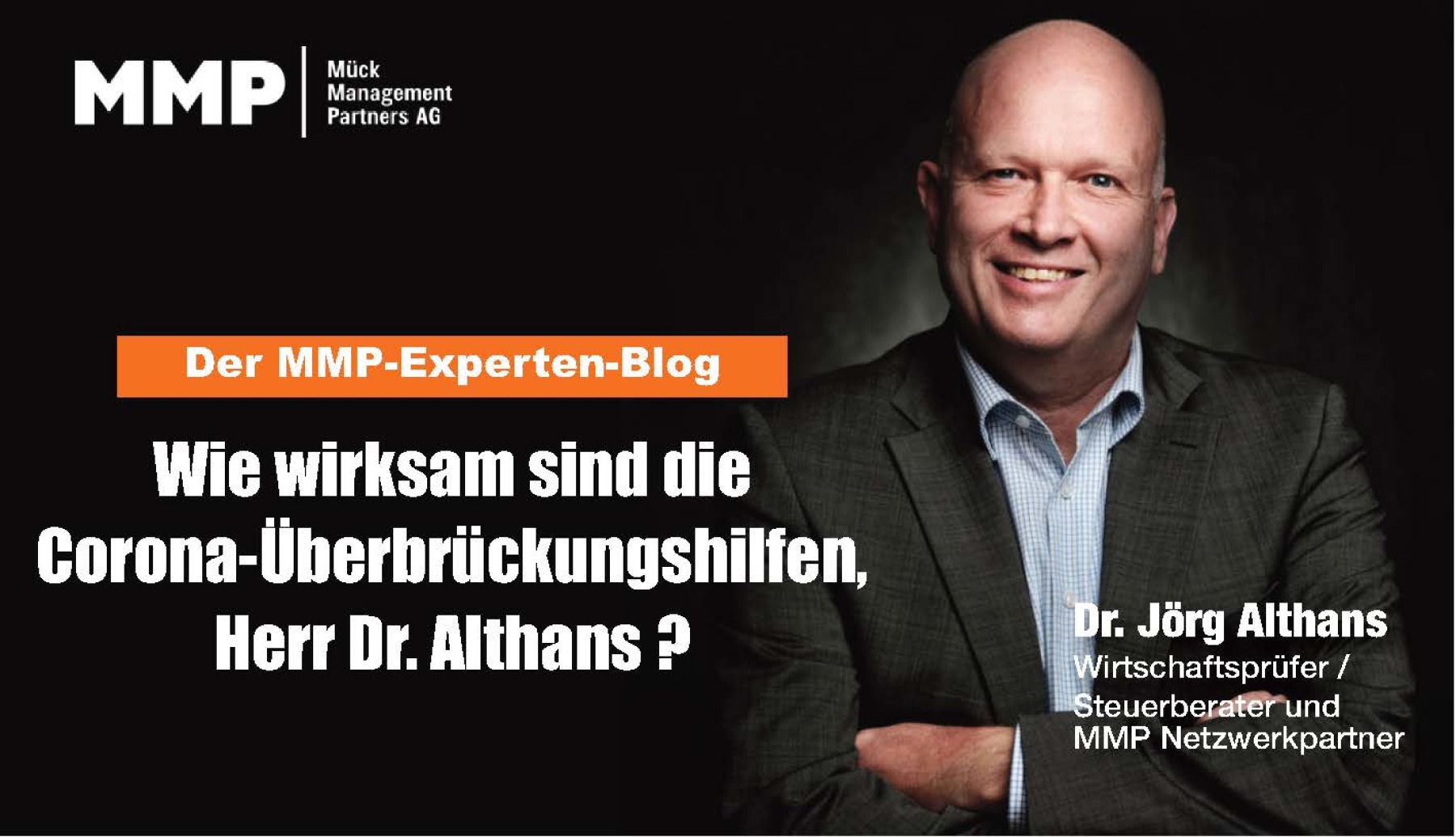MMP Expert Blog:
How effective are the corona bridging aids? By Dr. Jörg Althans
30 November 2020

Corona emergency aid, bridging aid 1/2/3, November aid, December aid, restart aid.
Quasi daily changing FAQ's and then still per federal state (long live federalism).
Who wants to keep the overview has a lot to do.
But one after the other.
Corona Emergency Aid was an extremely unbureaucratic cornucopia that was poured out over everyone who submitted an online application in 10 minutes.
Carry-over effects and subsidy fraud of the worst kind were pre-programmed. Solo self-employed persons fell by the wayside. Until today there are partly (e.g. NRW) no binding
criteria for repayment, i.e. this sword of Damocles continues to hover over many companies.
Corona Aid 1-2 was and is a bureaucratic and complicated monster, whose benefits are disproportionate to the costs. I am sure that the majority of my colleagues
would have liked to save this work despite the possible additional turnover. In addition, solo self-employed persons without corresponding fixed operating costs are also not taken into account here; moreover, it is also used here for
many companies will still have surprises in the form of repayments.
And by the way: Corona Aid 3 (runs from 01/2021) will not bring any structural improvement here.
November and presumably also December aid is basically going in the right direction for the affected companies (forced closure), but does it have to be 75% of the turnover that is paid out?
be replaced. In my experience, many of the industries that are particularly affected (gastronomy, hotels) have a cost of goods that is well over 25%. It can be seen that this is basically the case.
You can't blame an entrepreneur for accepting this gift and not thinking about it for the rest of the year.
With all understanding for the absolutely new and special situation one can expect from a Federal Government that after approx. 9 months lead time it will slowly develop more thought-out models
to the "market", which will actually help those companies whose business model is fundamentally competitive and who are in a temporary emergency situation due to the pandemic.
So why not exclusively provide unbureaucratic liquidity support (interest-free) on a credit basis, which can be assessed after the pandemic using meaningful criteria (BWA, annual financial statements, etc.)
and, if necessary, converted into a grant. One can be relatively certain that these are only claimed by companies that believe in the future of their business and
position themselves accordingly.
I am definitely not sure how long the state "patchwork" will continue to function, but this problem is not really new in tax law either.